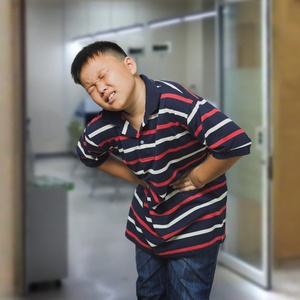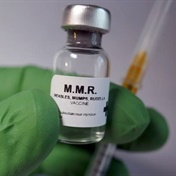
Skipping surgery and treating appendicitis with antibiotics alone may be a safe approach for many children, a new analysis suggests. This is good news because it eliminates the expense and pain of an operation, as well as time off school.
Appendicitis is the inflammation of the appendix, which is a hollow tube-like structure attached to the lower right side of the colon. If untreated, an inflamed appendix can burst, causing infection and even death, therefore anyone with symptoms that might indicate appendicitis should see a doctor immediately. Traditional treatment entails surgical removal of the appendix.
Non-operative treatments
Reviewing 10 studies on more than 400 young patients, researchers found that nonsurgical treatment for an inflamed appendix appeared effective overall. But, appendicitis recurred in 14 percent of patients, and the study authors urged more research to inform doctors' decision-making.
"It may in the future be appropriate to offer non-operative treatment, with antibiotics, as an alternative to children with acute uncomplicated appendicitis," said study author Dr Nigel Hall. He's an associate professor of paediatric surgery at the University of Southampton in England.
"However, at this stage we would not recommend that non-operative treatment is offered as treatment outside of a carefully designed research study," Hall added. "This is [because] we need to fully evaluate non-operative treatment in larger numbers of children and also perform detailed comparisons ... so we can better understand the relative merits of each treatment approach."
Surgery has long been the primary treatment for appendicitis, an inflammation of the pouch-shaped organ at the lower tip of the large intestine. The condition can occur at any age, but is most common between the ages of 10 and 20, according to the study.
Appendicitis is the most common cause of acute abdominal pain requiring surgery. More than five percent of Americans develop appendicitis at some point in their lives, according to the US National Institute of Diabetes and Digestive and Kidney Diseases. Symptoms include fever, nausea and/or vomiting, and extreme tenderness of the abdomen.
Appendicitis can be life-threatening
A ruptured appendix, which releases dangerous bacteria into the abdomen, is a rare but life-threatening complication of appendicitis.
Hall and his team analysed various prior studies reporting the use of antibiotics alone for cases of uncomplicated appendicitis in 413 children. Study designs, however, varied widely and did not all compare the same factors.
After follow-up periods ranging from eight weeks to four years, non-surgical treatment remained effective in 79 percent of children, with appendicitis returning in 14 percent. No serious complications related to non-surgical treatment were reported.
The study was published in the online issue of the journal Paediatrics.
Similar research published in March 2016 showed that eight percent of appendicitis patients initially treated with antibiotics required surgery within a month, while 23 percent experienced a recurrence of appendicitis within 12 months.
Surgery still the best option for now
Hall said there wasn't enough firm evidence comparing antibiotics with surgery, emphasising that his analysis is a starting point for more comparison.
"At present, we do not know if there are subgroups of children who would be best treated with antibiotic treatment or if some children would be better having surgery," he said. "This is another reason we need to do the proper research before non-operative treatment is introduced in a widespread way."
Dr Daniel Bonville is division chief of acute care surgery at Houston Methodist Hospital. He said it's impossible to draw conclusions from the new analysis about how safe a nonsurgical approach for appendicitis would be since many of the included studies didn't directly compare antibiotic treatment to surgery.
"The most important part of this study is it does say we need to do more research," Bonville said. "Appendicitis, even though it's pretty common, can be very complicated to diagnose. Surgery doesn't necessarily need to be done [immediately], but waiting always has to be done with caution."
Read More:
Air pollution tied to appendicitis




 Publications
Publications
 Partners
Partners











